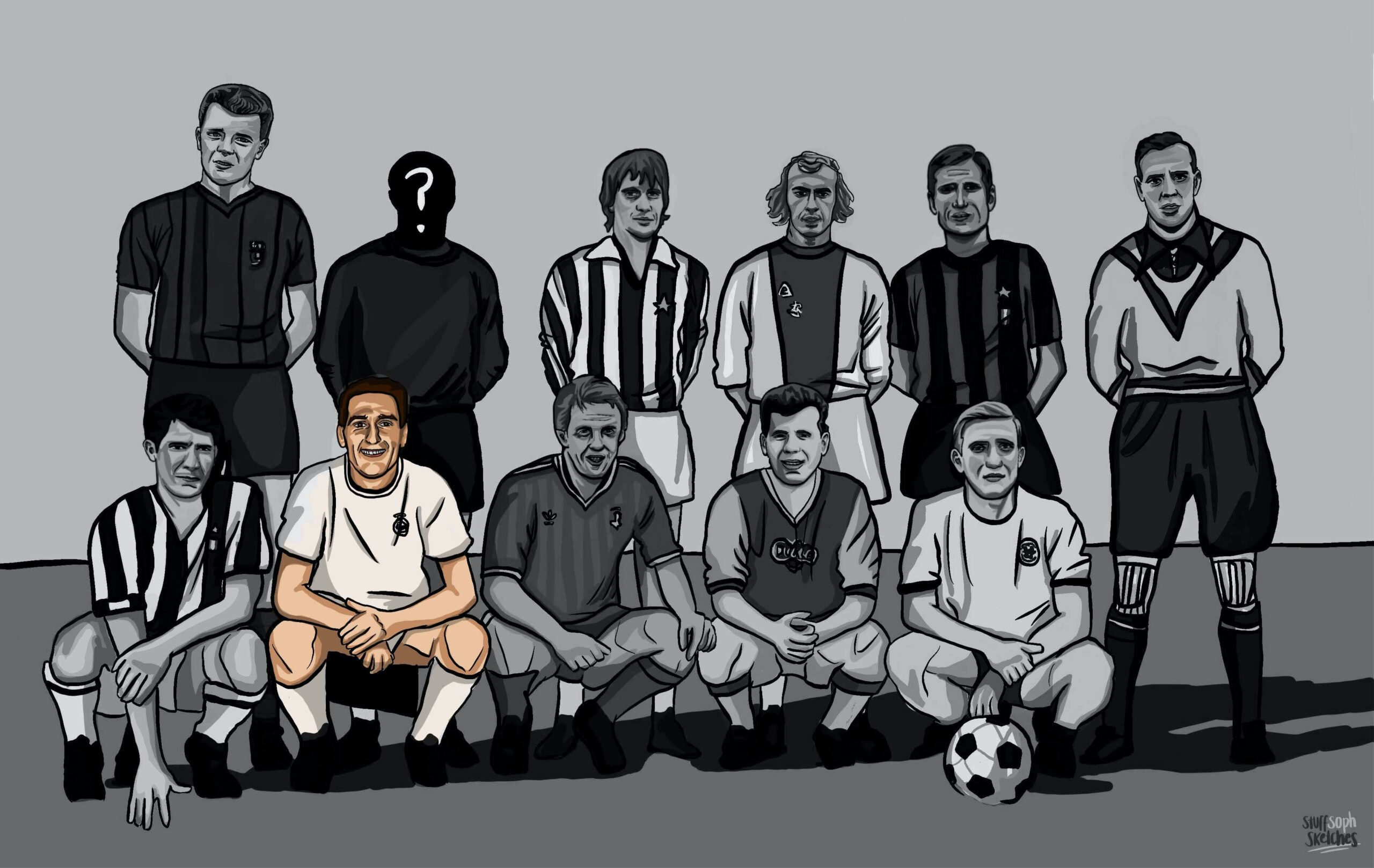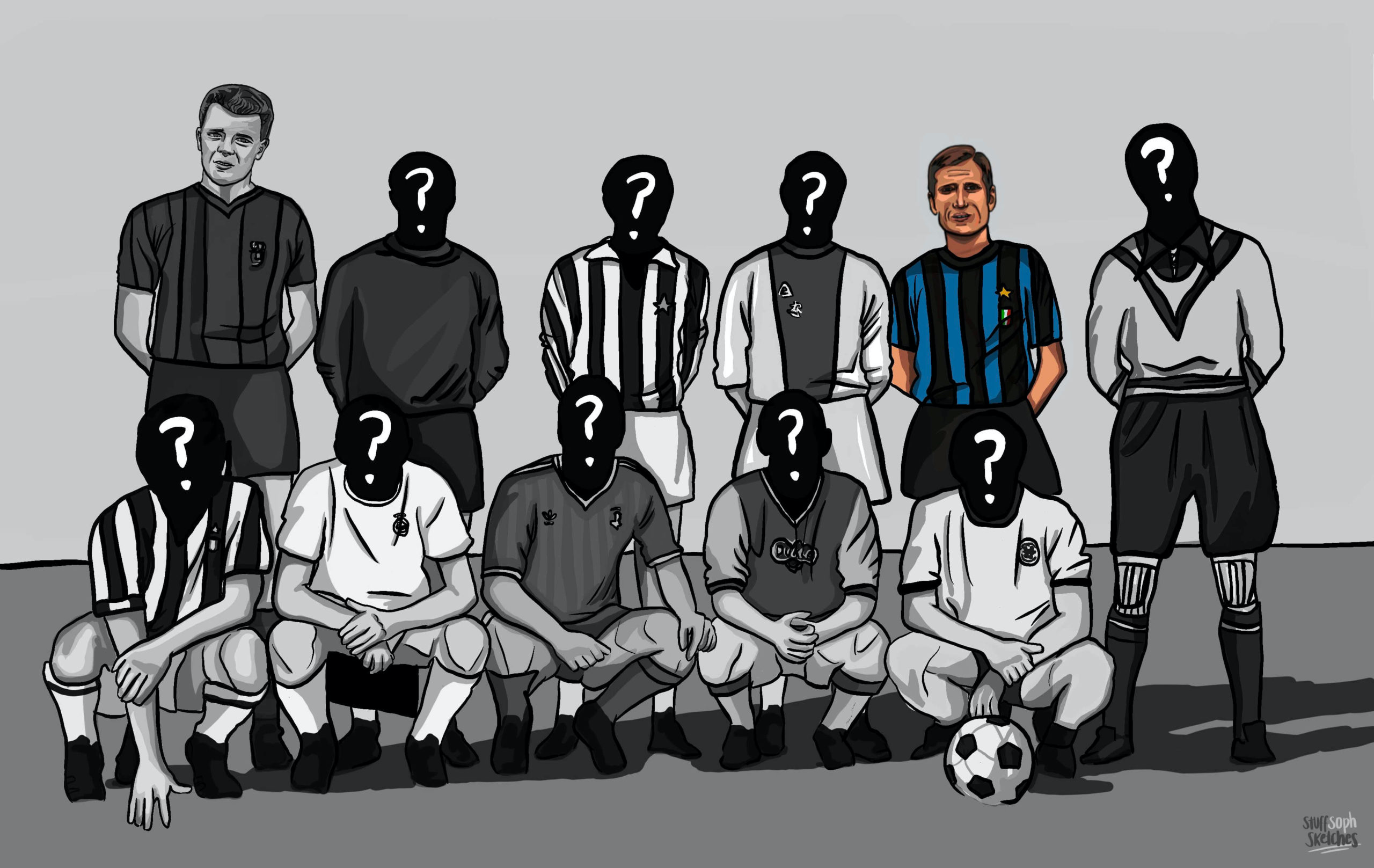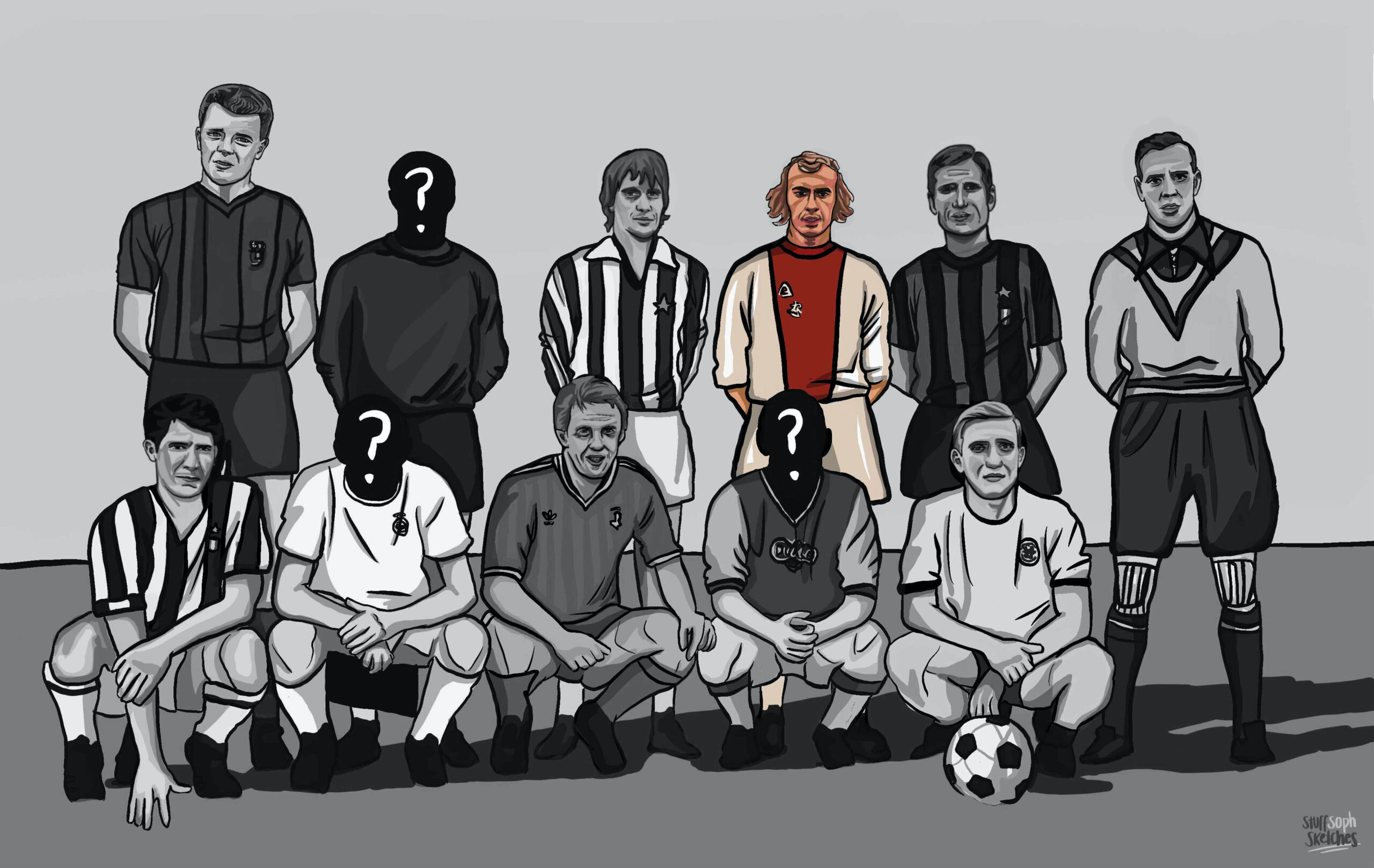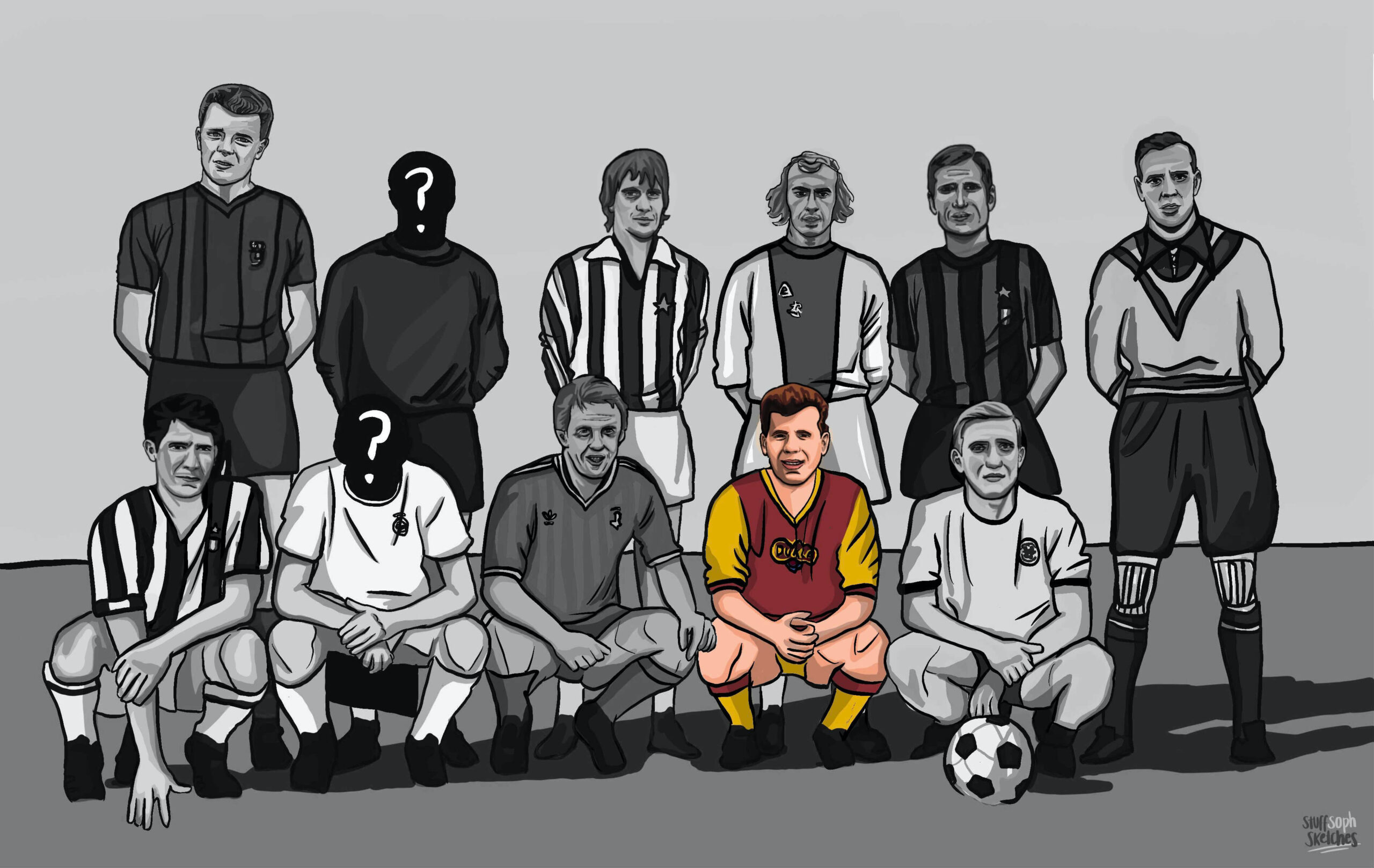Between 1954 and 1971, Real Madrid won six European Championships, twelve La Liga Championships, three Copa del Rey titles, two Latin Cups and one Intercontinental trophy. When they weren’t winning silverware, they were coming close – finishing runners up in La Liga three times, the Copa del Rey four times, the European Cup twice and the European Cup Winner’s Cup once. Throughout this period, one man was constant; a player who didn’t always receive the same plaudits that his teammates Kopa, Puskás and Di Stéfano may have done, but a player whose contribution was not underestimated by Real Madrid teammates, fans or coaching staff. His name was Francisco “Paco” Gento.
Born in Cantabria, 1933, Gento began his career with Racing Santander in the 1952-53 season and, despite playing only a handful of matches, impressed Real Madrid enough that they signed him four days after defeating his side 2-1 (the speedy winger would play out the season with Santander first). On an individual level, Gento’s first season for Madrid was not entirely successful, nor did it suggest that he would have the fantastic career he later went on to enjoy. Even though Madrid won their first La Liga title in twenty-one years, with Gento made twenty-one appearances, the forward failed to score a single goal. This was the only season in which he made more than ten league appearances and didn’t score. While he impressed in training, Puskás once remarked that Gento’s shooting could be wildly inaccurate and he regularly lost footballs over the training ground fences. Gento’s career at Madrid was in danger of ending before it had really started, and the club were seriously considering loaning him out for the 1954-55 season.
Di Stéfano complained that he was too quick and advised his teammates not to pass the ball into space for they couldn’t keep up.
Thankfully for Gento, Di Stefáno intervened and persuaded Madrid not only to retain Gento but also to sign his fellow Argentine, Héctor Rial. This signing was proof that great players need talent around them to help them reach their full potential. Rial’s presence in the Madrid side, with his verbal prompting and footballing wisdom, helped transform Gento from an unpredictable left winger into one of the finest in the world. Supported by Rial, Gento burst into life in his second campaign with Los Blancos. Madrid retained their La Liga trophy in 1954-55 meaning that they were the Spanish representatives in the inaugural European Cup the following season. Madrid would go on to beat Reims 4-3 with Gento creating the winner for Rial in the seventy-ninth minute.
Real Madrid would go on to win the next four European Cups. Gento appeared in all five of the European victories between 1956 and 1960, improving his performances with every final. In 1957, it was his pace that unlocked the Fiorentina defence, scoring the second with a delightful chip over Guiliano Sarti in a 2-0 win. The 1958 European Cup final against Milan ended 2-2 after ninety minutes and, for the first time in the competition’s history, went to extra-time. Gento responded to the tiring Italians by exploding into life during the extra thirty minutes. Firstly, going past three defenders, he saw his cross wasted. The next time he cut inside and shot, smacking the post. Two minutes into the second half of extra-time, it was third time lucky when his fizzing shot surprised the Milan goalkeeper. In time-honoured fashion, Gento remarked: ‘I just hit it and hoped’. In the 1959 final, he had a goal disallowed for taking a freekick too quickly (not that it mattered as Madrid defeated Reims 2-0 anyway). Whilst Di Stéfano and Puskás are often credited for the victory in the final of 1960 at Hampden, in truth no-one had ever seen anything like Puskás, Di Stéfano and the sprinting runs of Gento before. Di Stéfano (three) and Puskás (four) scored all of Madrid’s seven goals in their 7-3 victory against Eintracht Frankfurt. Gento helped create arguably the best of the seven after a blistering run and perfect cross for Puskás to head home.
Gento was captain of the team when they next reached the final in 1962. Yet, the aging Real Madrid team were unable to cope with an Eusébio-inspired Benfica, who won the match 5-3. Gento was again captain when Madrid lost to Inter Milan in the European Cup final of 1964. This time, the former Barcelona manager Helenio Herrera masterminded Inter’s victory with Tarcisio Burgnich marking Gento out of the game. Two years later, in the final of 1966, Gento captained Real Madrid to victory over Partizan Belgrade, winning 2-1 and becoming the only player to have won six European Cups (a feat that is still untouched). The 1969-70 season was Gento’s last in the premier European competition, although he did feature in the European Cup Winners’ Cup final the following season, retiring after Chelsea defeated Madrid 2-1 in the replay.
Gento was as quick with the ball as he was without it, making him the perfect player to compliment Di Stéfano and Puskás in a Madrid side that did nothing new tactically. Continuing to play five forwards, Madrid played with an attacking bravado that would open up even the tightest defence. Gento’s contribution cannot be understated. He was considered the fastest player to have ever set foot onto Spanish soil, reportedly being able to sprint 100 metres in twelve seconds. When he first broke into the Madrid team, Di Stéfano complained that he was too quick and advised his teammates not to pass the ball into space for they couldn’t keep up. When sprinting for a pass on one occasion, Gento actually ran out of pitch and crashed into the advertising boards. However, his pace was terrifying as he gained better control; with his small stature and low centre of gravity, it was impossible to stop him. He would win loose balls, despite giving opponents a head-start, and, as fast as he was, he could stop suddenly and change direction while hapless defenders skidded past him. Being two-footed, he had great close control in tight situations, enabling him to dribble past two or three players in close quarters before getting away and delivering a pinpoint cross. His brilliance created many goals for his teammates, but his much-improved striking ability is not to be forgotten either. Gento had a rather powerful shot and scored 128 goals in 428 La Liga appearances for Madrid.
When Gento retired in 1971, he had played in 600 official matches for Real Madrid, scoring 182 goals. His career at Madrid did not start well, but due to his willpower and the sacrifices he made, he ended his career with more medals than both Di Stéfano and Puskás. In his career, he set many records including the most European Cup final appearances (matched only by Paolo Maldini with eight), the most European Cup final wins (unmatched with six), the most consecutive European Cup seasons (fifteen) and he played in the highest number of La Liga seasons (nineteen) as well as La Liga titles (with twelve). Watching Gento, Bobby Charlton once commented that it was the best thing he had ever seen while Pelé mentioned his name too when discussing the greatest players of all time. Even the Catalan paper La Vanguardia praised his performance after the European Cup victory in 1966. With said victory, the club’s sixth European Cup, Gento was the only player left from that great Los Blancos team of the 50s. Certainly, it ought to be remembered that Francisco Gento was as much a part of the great Madrid sides of the 1950s and 1960s as the likes of Di Stéfano or Puskás.



